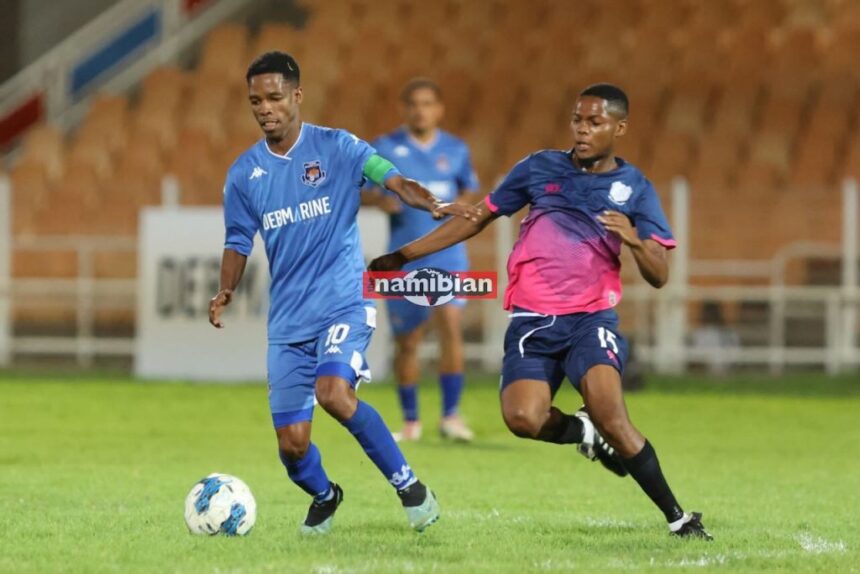After getting “what we asked for” from the national budget, the Ministry of Sport, Youth and National Service is racing against time to get Windhoek’s Independence Stadium in a condition fit to host the Region Five Games next May, the ministry’s executive director, Erastus Haitengela, says.
The N$29,5 million set aside for the games is one of the notable reasons for the increased budget allocated to the youth ministry, which went up by 45,3% to N$679,4 million in the 2024/25 financial year and a total of N$2,2 billion over the medium-term expenditure framework period.
It ties into the N$124 million provided in the development budget for, among others, upgrading Independence Stadium, as well as various sport facilities and multipurpose youth centres across the country.
Haitengela says the process to begin rehabilitating the national stadium is underway.
“We’ve been informing the nation that we’re busy with a tendering process in terms of getting a lead consultant. That process is almost at an end now, we have notified the bidders last week in terms of the technical part,” he says.
“In terms of the process, you have to give a window period of seven working days for those who want to object. Out of ten, we got some objections and next week Monday is the last day for objections,” Haitengela says.
The exact cost to refurbish the facility is unknown and it could be more than what is in the current budget, he adds.
“The next step is for us to open the financial bid and after that we will then award the lead consultancy service.
“Because of that, we’re not in a position to know how much money we need for the Independence Stadium. We have some funds that help us to start the process in the budget ending on 31 March. That budget will be able to cover for the start of the lead consultant.
Starting 1 April, we have a budget of N$80 million out of the N$124 million for infrastructure which we have allocated to the Independence Stadium. We are hoping that the lead consultant will start with the cost estimate properly in line with category level 3 of the Fédération internationale de football association (Fifa) and the Confederation of African Football (CAF), so that we know what this exercise will cost government,” Haitengela says.
The ministry intends to have a multiple contractors working on the stadium at once to speed up the process.
“We do not want to have one big contractor who we wait for to do one thing and then it takes three to four years. It all depends on how fast we appoint a lead consultant, which is hopefully within a week or two. Once we get them on board, come April, I’m sure things will start moving fast, ” Haitengela says.
He adds that the priority would be to remove and install a new tartan track in time for the Region Five Games.
“We need to prioritise so that we make sure that we meet the targets we set for ourselves. But the overall upgrading will continue in the background of what we’re doing.”
Once complete, the Independence Stadium is expected to herald the return of international football home matches, which are presently staged abroad.
It is a project that resonates with the second of three pillars of the 2024/25 financial year budget.
This pillar is concerned with accelerating “investments in productive public infrastructure through an increase in the development budget to upgrade infrastructure that has become a hindrance to economic activities, as well as to expand social infrastructure to meet the needs of a growing and rapidly urbanising populace and ensure the delivery of frontline public services”.
Allocations have been made to various youth programmes to support with skills development and capacity building. The allocation caters for, among others, skills development courses for out-of-school youth (N$20 million), youth training through the charcoal and mushroom production programmes (N$12 million), funding for the youth credit scheme (N$10 million), financing for 121 youth enterprises across all constituencies (N$9,8 million) and youth skills development through the National Youth Service (N$20 million).
“It’s really great work from the ministry’s side in terms of planning and in terms of making sure that we allocate money where it’s needed most,” Haitengela says.
“Sometimes we’re not appreciating what the ministry of finance is doing. People forget that when you go to the ministry of finance, you must motivate your budget. This is based on information you get from the sport codes or relevant institutions.
“In this case what we’re saying is whenever I ever I ask for the sport codes to submit their budgets on time, it is so that we can incorporate it in the overall ministry budget.”
Stay informed with The Namibian – your source for credible journalism. Get in-depth reporting and opinions for only N$85 a month. Invest in journalism, invest in democracy –
Subscribe Now!



Leave a Reply